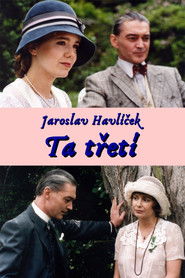detail profile ta c5 a5jana medveck c3 a1
Peran Yang Di Mainkan Taťjana Medvecká
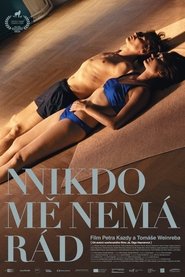 Sara is an attractive 29yearold single...
Sara is an attractive 29yearold single...Nobody Likes Me 2025
Sara is an attractive 29-year-old single woman. She works as a secretary at the army headquarters in Prague. Although strong young men constantly surround her, she has not found a partner yet, probably due to her authoritarian mother. Yet Sara enjoys solitude and has come to terms with her position as a detached observer of other people´s lives. She is fascinated when she meets the gallant, graceful, and soft-faced Martin. Gradually, their connection grows, but when Sara wants to take their relationship to a deeper and more physical level, Martin shies away. He is hiding a deep secret. Refusing to accept his unwillingness to open up to her, Sara compels him to expose himself, and when he finally does, it turns out he is intersex, a hermaphrodite. Sara’s love remains strong, but when she unintentionally reveals Martin’s secret to her family, she discovers that her joy at the relationship has blinded her to the reality of how society deals with “freaks.”
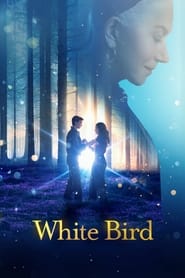 After being expelled from Beecher Prep...
After being expelled from Beecher Prep...White Bird 2023
After being expelled from Beecher Prep for his treatment of a classmate with a facial deformity, Julian has struggled to fit in at his new school. To transform his life, Julian's grandmother finally reveals her own story of courage of her youth in Nazi-occupied France, where a classmate shelters her from mortal danger.
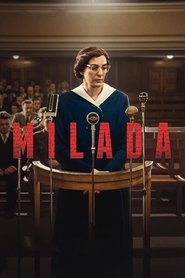 The story of communist showtrial victim...
The story of communist showtrial victim...Milada 2017
The story of communist show-trial victim Milada Horáková. Horáková was one of the first victims of the communist regime in Czechoslovakia. She opposed the communist coup in 1948 but did not leave the country. She was arrested and tried for treason on fabricated charges in a show trial that was broadcast on the radio and shown in film clips. The film focuses on the time from 1945 to 1950 when the communists took over, but also goes back a little further in Horáková's life into the late 1930s
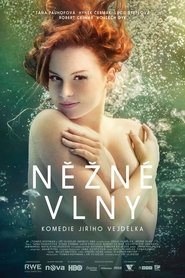 The congenial Vojta is bashful and...
The congenial Vojta is bashful and...Tender Waves 2013
The congenial Vojta is bashful and his family is batty. His short-tempered father, who once failed to swim the English Channel, wants him to be a competing swimmer and his loving mother, a former child ice revue star, sees a talented pianist in her son. But Vojta has completely different priorities - most of all his red-haired classmate Ela, an enchanting synchronized swimmer who is leaving for Paris in November. If Vojta doesn't do something radical, and fast, Ela will disappear behind the Iron Curtain forever. The year is 1989.
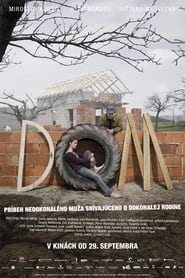 Stone by stone Imrich is building...
Stone by stone Imrich is building...The House 2011
Stone by stone, Imrich is building a small house for his daughter Eva almost entirely on his own. But for Eva, who is about to graduate from school, the prospect of moving into the house is about as appealing as being imprisoned in a jail she herself has helped to build. She has very different plans for her future...
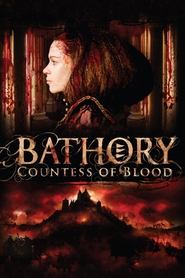 Bathory is based on the legends...
Bathory is based on the legends...Bathory: Countess of Blood 2008
Bathory is based on the legends surrounding the life and deeds of Countess Elizabeth Bathory known as the greatest murderess in the history of mankind. Contrary to popular belief, Elizabeth Bathory was a modern Renaissance woman who ultimately fell victim to men’s aspirations for power and wealth.
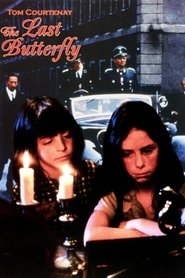 Stage mime Antoine Moreau is compelled...
Stage mime Antoine Moreau is compelled...The Last Butterfly 1991
Stage mime Antoine Moreau is compelled by the Gestapo to put on a performance for the children of Terezin, a "model" concentration camp, to convince the Red Cross observers that the camp is truly what it seems. Reluctant at first, Moreau slowly learns the true nature of the camp, including the meaning of the "transports" on which people leave. With a world-class orchestra (made up of people interned in the camp) and a cast of children, Moreau stages a show to end all shows.
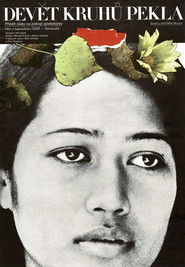 As the Khmer Rouge carves a...
As the Khmer Rouge carves a...Nine Circles of Hell 1988
As the Khmer Rouge carves a path of death throughout the land, a Czech doctor falls in love with a Cambodian woman. Their relationship, though sorely strained by the war's horrors, produces a child. The doctor is separated from his family once Pol Pot assumes control.
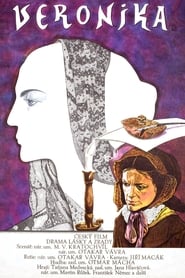 Emperor Francis Joseph I is about...
Emperor Francis Joseph I is about...Veronika 1986
Emperor Francis Joseph I is about to arrive in Prague, and among those who came to Stromovka to welcome him is Veronika Pavlitová. She wants to submit a request for clemency for her imprisoned father to the emperor, because she is barely able to support herself and her siblings on the meager salary of a seamstress. By chance, the girl meets Božena Němcová, whom she admires immensely. She becomes her friend and confidant for a while. However, police director Paümann, who has been following Božena Němcová for a long time, takes advantage of the naivety of the young girl. Veronika, in her simple-mindedness, tells him many things. Only later will she understand how she was abused.
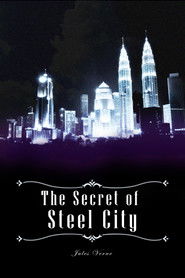 The film is a metaphor for...
The film is a metaphor for...The Secret of Steel City 1979
The film is a metaphor for the Cold War. It depicts two neighbouring nations: peace loving Fortuna and the not so peaceful land of the Steel City.
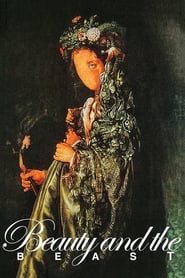 Julie the youngest daughter of a...
Julie the youngest daughter of a...Beauty and the Beast 1979
Julie, the youngest daughter of a bankrupt merchant, sacrifices her life in order to save her father. She goes to an enchanted castle in the woods and meets Netvor, a bird-like monster. As Netvor begins to fall in love with Julie, he must suppress his beastly urge to kill her.
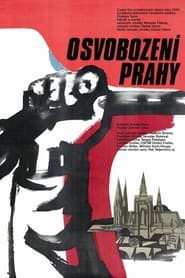 On 20th of April 1945 the Soviet...
On 20th of April 1945 the Soviet...The Liberation of Prague 1977
On 20th of April 1945 the Soviet army launches its attack on Berlin. The end has come for Nazi Germany and Hitler decides to commit suicide. In Prague K.H. Frank (Nazi Secretary of State and Chief of police in the Protectorate of Bohemia a Moravia) discusses with his commanders how to transform the city into an impregnable fortress, but the Praguers do not intend to wait any longer. From the early hours of 4th of May people start assembling in the streets and tearing down German signs. On the next day, the 5th of May, the uprising begins.
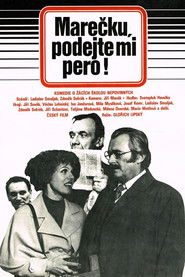 This comedy is about one average...
This comedy is about one average...Marecek, Pass Me the Pen! 1976
This comedy is about one average family. The father works as master in the factory and his son is studying on high school. One day father must start to visit the evening school. It's the same school as his son visiting. The lives both students are connecting together. The son must teach the math and physics his own father. The father getting to know, that the life of the students is not simple as he supposed.
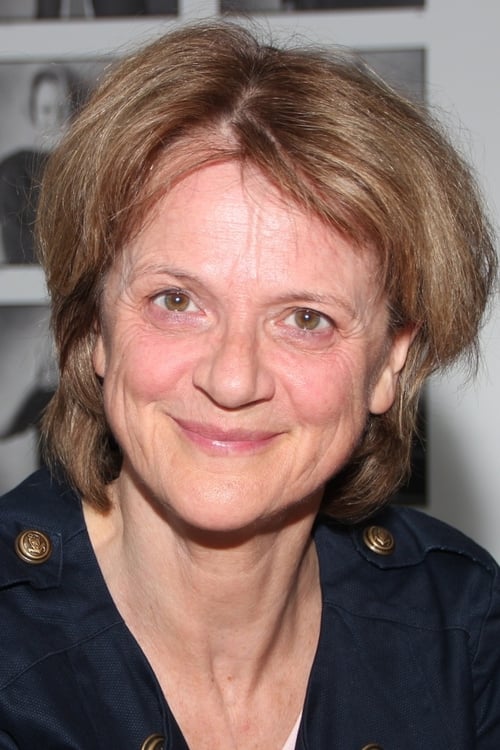
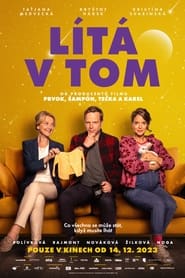
 A misfit teenager an anxious mother...
A misfit teenager an anxious mother...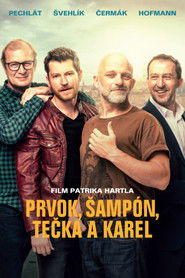 Four old friends decide to shake...
Four old friends decide to shake...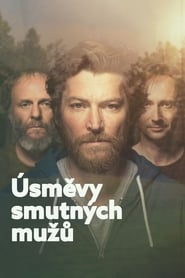 A writer gets into a rehab...
A writer gets into a rehab...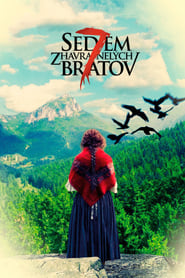 The story of a young woman...
The story of a young woman...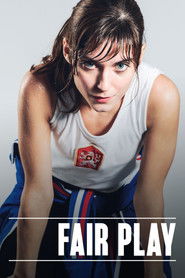 In the 1980s Anna a Czech...
In the 1980s Anna a Czech...